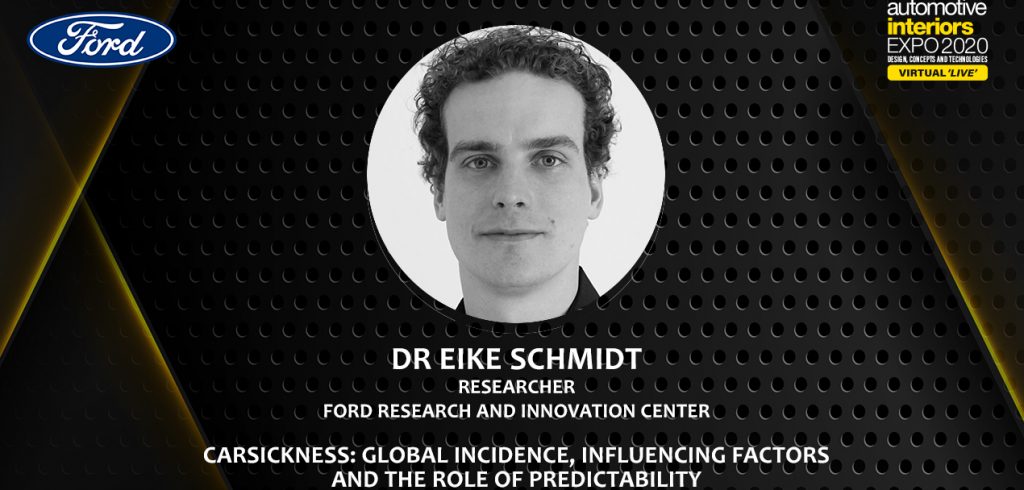With the rise of autonomous driving technology, motion sickness has moved to the fore of many manufacturer’s R&D efforts, as self-driving strategies need to be developed to mitigate the effect of unexpected maneuvers on occupants.
In his presentation at next week’s Automotive Interiors Virtual ‘Live’ (December 1 & 2), Eike Schmidt, a research engineer at the Ford Motor Company, will provide an overview of several studies by the manufacturer and its partners, investigating carsickness in detail.
Schmidt, who works in the Human Center Technology department at Ford’s Research & Innovation Center in Aachen, Germany, will reveal the latest data from surveys conducted across the globe to gain a basic understanding of today’s carsickness incidence, along with customers’ perception of influencing factors and individual differences.
He will share how users have been surveyed on the perceived impact of elements such as road topology, engaging with in-car technology and the influence of aromas in the cabin. These surveys netted some interesting results, for example in terms of perception, odors were found to be almost as influential as twisting roads. Variations in susceptibility to carsickness, such as age and genetic predispositions, were also considered.
Ford also undertook controlled lab experiments which underlined the relevance of motion predictability and the mitigating potential of making motion more predictable. Finally, the first on-road trials evaluating an early prototype of a motion-cueing-based carsickness mitigation concept will be covered.
Eike’s presentation will take place at 14.20 CET on Tuesday, December 1, as part of the ‘Balancing HMI in Hardware and Software to meet all Use Cases‘ session. Click here for more details and to register (free).




